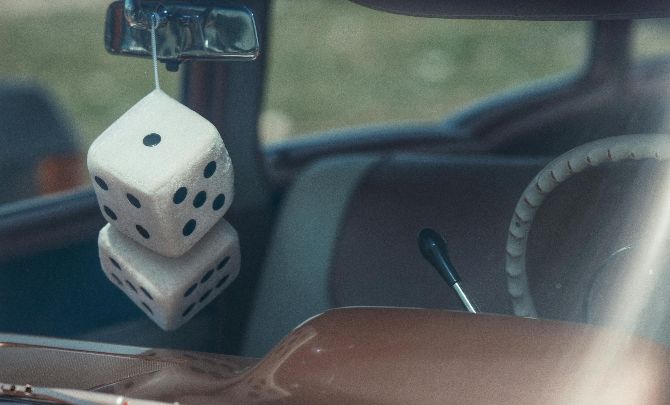People enjoy a flutter. From cards to dice to spinning wheels, the magnetic draw of chance ties us across continents and millennia. With 26% of the world’s population at least once having tried their luck and an estimated 4.2 billion people gambling yearly, this universal past time crosses boundaries but shows itself in remarkably varied ways.
When you look at gambling practices around the globe, you are seeing windows into cultural souls where every wager is shaped by spiritual beliefs, historical background, and society values, not only by games. Our gaming habits, whether with friends or online at Jackpot City MW expose who we are, maybe more honestly than we know, turning basic games into complex cultural rituals that tell volumes about shared cultures and our different communities.
Fortune’s faithful
Gambling runs through the cultural veins of China. This shows itself in shockingly high numbers too: Chinese gamblers rank second worldwide and spend $62.4 billion yearly. Visiting a Macau casino will see players painstakingly avoiding the number 4 (which sounds like “death” in Mandarin) while embracing 8 (which indicates wealth). If you find yourself at a Baccarat table you may find bets cleverly hidden inside red “hongbao” envelopes, which remain sealed until the game ends — where breaching this custom purportedly ruins good fortune.
The casino scene seems a little different across the sea in Japan. But with annual spending around $24.1 billion, Japan ranks as the third biggest gambling market in the world despite strong regulations on the activity. The unique Pachinko parlours are monuments to Japanese creative ability. On your next visit, pay close attention; the victorious ring of bells reveals jackpot winners, generating temporary gaming floor celebrities.
Games from Southeast Asia combine the spiritual with the recreational. Before visiting gaming venues, gamblers in Thailand and Cambodia may go through ceremonial cleaning rituals too. Macau’s casinos interestingly smell like incense as players interact with fortune gods. Meanwhile, after major victories, Filipino celebrations explode with firecrackers, a custom both as rejoicing and spiritual protection that drives away latent evil energies capable of reversing a gambler’s fortune.
The bones say a lot
South African tribes created advanced gaming systems mirroring their social structures long before European colonists came carrying their card decks and roulette wheels. Through games like “ishushumbiso,” where carved bone pieces – very similar to dice – decided the victors depending on their landing positions. The Zulu, Xhosa, and Sotho peoples all turned uncertainty into a well-received cultural practice.
When tribal members gambled valuable animals (a valuable commodity at this point), they participated in a ritual that upheld ties to ancestral domains, strengthened social hierarchies, and resolved many disputes. Unlike our contemporary understanding of gaming as essentially amusement, these customs acted as a sort of cultural glue connecting societies together via common rituals.
Players did not credit results to simple chance in this sense; ancestors and ‘spirits’ influenced the fall of bones, therefore transforming gaming into holy communication. Think about this the next time you roll dice: your stake could be linking you to something far more than mathematical chance.
High rollers
America’s association with gambling begins in colonial Virginia, where aristocrats from 1680s set complex betting regulations around horse racing — less about money really, and more about proving bravery and strengthening class divisions. With the United States now leading worldwide gambling markets with astonishing yearly spends of $116.9 billion, this historical seedling has blossomed into a soaring behemoth. While 62% of Americans said they gambled in some capacity last year, the Super Bowl alone brought in $23.1 billion in wagers.
Over the Atlantic, unique customs still abound. British gaming venues keep the polite habit of providing tea to players, offering a civilised environment for risk-taking. Underneath this courteous exterior though is an extensive participation: almost half (48%) of British young people between the ages of 11 and 17 had gambled to some extent. Ireland shows even more excitement and participation; people there spend an average of 713 Euros on different kinds of betting.
But, none gamble quite like Australians. With 73% of adults claiming the greatest rate of gambling involvement worldwide and averaging $1,635 yearly, the country boasts both the steepest per-capita spends and the highest rate of gaming engagement overall. Australians visiting gaming facilities usually spend between $54 and 71 in a single session, figures that demonstrate the great integration of gaming into Australian social life.
The voice of superstition
People have always created ceremonies to honour Lady Luck wherever they live. Whether drawn from birthdays, anniversaries, or cultural associations, lucky numbers tend to cut across cultural barriers. These personal numerical talismans give psychological solace against the arbitrary nature of games of chance.
Body posture strangely comes into this too. While some customs claim standing brings better luck, others swear by sitting. In certain societies, confronting specific compass directions is supposed to enhance results. Closely observe certain gamblers and you will see these physically embodied superstitions: the soft blow across dice before throwing, the particular sequence of card checking, the lucky clothes worn despite a clear absence of fashion sense, all to accommodate what is thought of as lucky.
It’s truly fascinating how these beliefs exist across civilisations; and how identical patterns show up independently. When confronted with uncertainty, our common human psychology seems to seek some sense of control, which results in parallel ceremonial change over continents and millennia.
The cards we deal with
Gaming customs expose cultural priorities, spiritual beliefs, and social systems, thereby reflecting considerably more than just entertainment choices. From Macau’s incense-burning rites to the bone-throwing celebrations among indigenous South Africans, these customs show how a universal human action becomes especially articulated through cultural lenses.
These unique customs face both preservation issues and offer potential for adaptation as gambling keeps spreading via digital media. There is still an amazing capacity for gambling to be a cultural mirror reflecting who we are, what we value, and how we view fate. This will be a constant throughout humanity’s existance.
